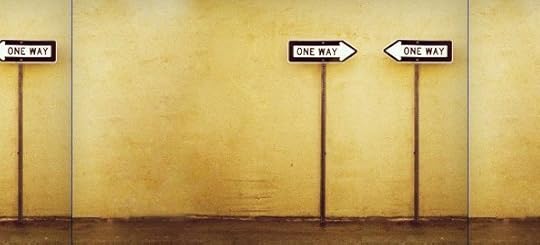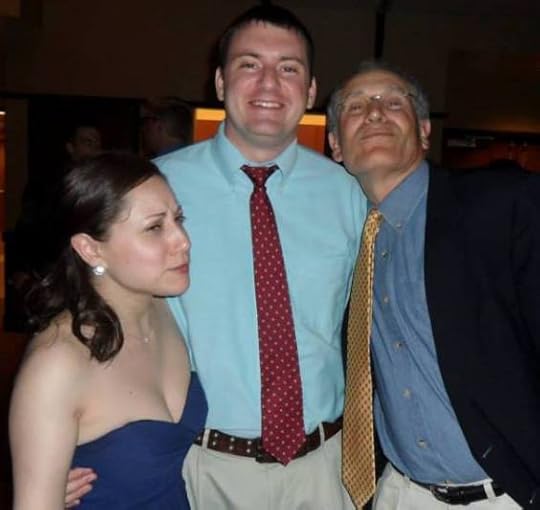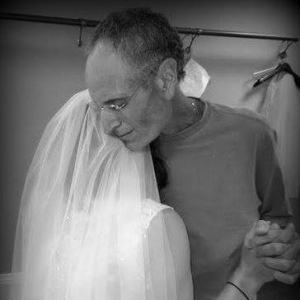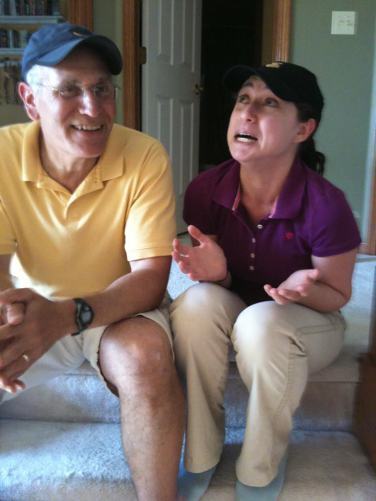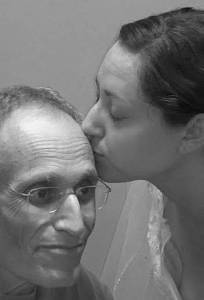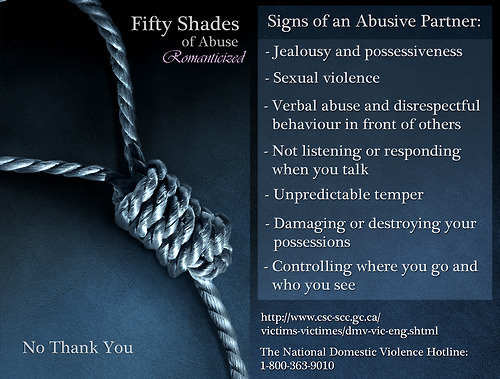Sarahbeth Caplin's Blog, page 51
February 17, 2015
One generation’s morality crisis is another generation’s “Eh, whatever”
Once upon a time, Christianity condoned and even encouraged owning black people as slaves. Today, we know better, and lament the behaviors of our ancestors. History tells us that every generation of Christians has had its own particular culture war. For our parents it was Jim Crow laws, and today, it’s gay marriage.
What do slavery, Jim Crow, and gay marriage have in common? Scripture has been used, and is still being used, to condemn all of the above. In the case of the former two, most Christians today admit that Scripture was twisted to justify those actions, and perhaps the enforcers weren’t really Good Christians. My question for Christians today is this: several generations from now, what’s to stop our great-great-grandchildren from maintaining that Christianity has no moral issues with being gay?
Before you reach for your Bible to point out the exact verses that say otherwise, remember that our ancestors did the exact same thing with slavery and persecutions of other minorities. We say that the Bible is the unchanging Word of God, but we haven’t let it remain unchanging. Not as much as we’d like to think. Otherwise, it wouldn’t be a handful of minority sects where the women only wear ankle-length dresses, never cut their hair, and push out as many babies as their bodies can bear. The Bible addresses these things, but somehow they’ve become non-issues over time. How many Christians do you know with pierced ears, dyed hair, and tattoos? I know a handful of pastors with all three.
I’m not making any moral proclamations on whether homosexuality is biblically sanctioned or not. But I will throw it out there that gay marriage will be a reality in all fifty States in the near future, and the Church will need to prepare itself for mass exoduses of once-faithful followers. We at least need to be honest with ourselves and admit that we are not as immune to cultural norms as we’d like to think: we no longer care (as much) about body ink and other modifications, most of us take man-made medicine when we don’t feel well, and go out for recreational drinks every now and then. One generation’s great moral crisis is another generation’s Eh, whatever.
All I’m asking is, how is homosexuality any different?
That’s an honest, sincere question.
Filed under: Religion Tagged: Christian culture, Christianity, Controversy, evangelicals, Homosexuality

February 15, 2015
This is my final post on Fifty Shades of Grey
Don’t worry, I’m not about to rehash all the reasons Fifty Shades of Grey reads like a manual for abusers – that’s been done thousands of times over.
I’m not about to shame every person I know who read the books, saw the movie, and enjoyed them. It’s just dumb to lose a bunch of friends over a series of poorly written literature (at least most everyone who’s read the series is unanimously agreed on that). This post isn’t for you.
I want to say something to the people who love the series, saw the movie, and have told me that I’m being whiny, oversensitive, and need a tougher backbone for being “offended” by this story. This post is for you.
Let me clarify one thing: I’m offended by the hideousness of Ugg boots and sentences that end with prepositions. To be “offended” is to find moderate distaste in something, but I don’t consider it personal (maybe that’s just me). I’m not “offended” by FSOG, I’m triggered by it; there is a difference.
What was my biggest error before writing out my thoughts and hitting the ‘send’ button: having a negative opinion on something many people love? Not being able to finish the first book because what I read gave me heart palpitations?
I’ve seen rebuttals that basically amount to “It’s just a story/fantasy! Don’t tell me what I can and cannot read! Stop being such a prude!” Here’s the thing, though: I never once called for banning or censoring this series. I’m a writer too; I know better than to ask that. But I did ask that people reread the series with a different set of eyes.
Considering the vast number of people who believe there’s unpunished, glorified abuse lurking in these pages, and considering that many who practice BDSM are saying the book’s portrayal is outright dangerous, these people deserve to be listened to. You don’t have to agree with them. The act of listening doesn’t require much, though sometimes trying to open a mental parachute so it stays open can be challenging. I know – I try to do this every time I log on to the Internet, and sometimes it’s freaking hard. Do it anyway.
I’ve had many “agree to disagree” discussions this week with close friends who surprised me with their view on Christian Grey. Okay, well, at least they listened to me, understood why I feel the way I do, and told me it’s okay. I treasure those people.
To those who heard my thoughts and retorted with the “Don’t like it? Don’t read it!” line anyway, all I have to say is this: you really disappointed me. I don’t know if I still consider you safe for me to open up to in the future if this is how you react now to a storyline that affects me personally. I don’t where we’ll go from here.
It should be obvious to anyone with eyes that FSOG is no longer “just a story.” It’s a cultural phenomenon. The moniker “Fifty Shades” is being used to market everything from perfume to wine to pizza, and the popularity has spawned hundreds of copycat novels. Like it or not, pop culture affects our perceptions of reality. We all know this, right? “It’s just a story” is no longer an acceptable rebuttal. It’s clearly way more than that, and the consequences for people who are triggered by it can be tragic: debilitating flashbacks (have you ever tried to function at work after having one of these?), panic attacks, anxiety, increased depression…
All I’m asking of you, FSOG fans, is that you be sensitive about it. That’s all.
Filed under: Feminism, Rape Culture, Writing & Publishing Tagged: censorship, Controversy, depression, Facebook, Feminism, Fifty Shades of Grey, rape culture, Writing

February 13, 2015
Navigating between indie and traditional publishing
You’ve read many of my reasons for choosing indie publishing, but today I want to open the blog space for another author as she explains her reasons for choosing to publish independently. Please welcome Natacha Guyot!
***
The first time I considered self-publishing was during my adolescence in the late 90’s. Things weren’t as easy back then. I didn’t even use the Internet yet but I read a couple of books about my self publishing options in France, especially as I still wrote in my mother tongue at this time. The idea to self-publish came from the genres I wrote in: Science Fiction and/or children literature. At this time, you had to go through an agency, but only one accepted these genres (especially Science Fiction). I wasn’t sure of what I wanted to do and eventually forego publishing my original fiction altogether.
Fast forward a few years and during my Ph.D., I look into getting academic articles published to establish myself as a scholar. This is no easy feat either, especially as my subjects aren’t so popular in France, because I study Science Fiction a lot, besides transmedia, gender studies and fan studies. What can I say? Science Fiction has been part of my world since I was a child and I don’t want to give up on what is my passion just to fit a mold, even when it eventually leads me to quit my Ph.D.
Academic papers helped me realize that writing because it is your calling is crucial. I knew when submitting papers that I wouldn’t earn money from this, but exposure and reputation, which are very important. It also made me discover how I love writing nonfiction, more than I would have ever expected, even with several research papers under my belt.
Submitting academic papers has taught me to deal with rejection. Most of my accepted papers weren’t at the first place I tried out. I also realized that just because a piece of writing was declined by someone didn’t mean that it was bad and that even when sometimes told I didn’t know my subject, it wasn’t always the reality. I am all for accepting suggestions and edits (as for the past years I have worked with proofreaders and editors) but I have learned to stick to my guns when I know they were true to what I believed, to the point of feeling strong enough to decline an offer of publication if I had to change my content on a drastic level. Believe me, it took me a few years to get there!
Publishing academic papers also allowed to eventually work as an editor on several volumes, both published traditionally and independently. I have also completely abandoned writing in French by now, and not simply because of how my topics are more interesting in English speaking countries and markets. This experience also gave me the courage to query a collection’s director with a nonfiction book proposal. I was lucky for a great collaboration and was blessed with a positive answer, which has turned out in my upcoming book Women in Science Fiction Television (Rowman & Littlefield) (http://natachaguyot.org/publications/).
In 2014, I began considering writing original fiction again (for the first time since 2005) as well as the possibility of finally publishing my Science Fiction novella for children (which I kept in its French version). I read a lot about writing, publishing and book marketing, but I don’t feel ready to query an agent at this point. I might one day, but now isn’t the right time.
I still took my first dive into self publishing, made so much easier now thanks to contemporary tools! Against all odds, it was for a nonfiction book, A Galaxy of Possibilities: Representation and Storytelling in Star Wars (http://amzn.to/1D5r0n6). This collection of essays stemmed from individual papers receiving negative answers from various academic publications. I thought that I was sitting on a good collection and would directly self publish, especially as I have been building my blog and online presence (http://natachaguyot.org/contact/) for a couple of years.
I have now several projects (fiction and nonfiction) I project to self publish on Amazon (as I am sticking to this platform so far). Yet, I haven’t given up on traditional publishing. I have at least one nonfiction book I want to go the traditional publishing route. I am also pondering short story competitions. Overall, I find it very exciting that as authors we have several options, which aren’t mutually exclusive. None of them is easy, because hard work and perseverance will always be at the heart of our lives.
Natacha Guyot is a French researcher, writer and public speaker. She holds two Master’s degrees: Film and Media Studies (Paris III Sorbonne Nouvelle) and Digital Culture and Technology (King’s College London). Her main fields of interest are Science fiction, Gender Studies, Children Media and Fan Studies. She considers herself a feminist, a fangirl, a bookworm, a vidder, a gamer and a cat lover. You can find more about her projects at natachaguyot.org and follow her on Twitter @natachaguyot.
Filed under: Writing & Publishing Tagged: Indie Author Life, self-publishing, Writing

February 10, 2015
What evangelicals fail to understand about consent
Yes, this is another post inspired by Fifty Shades of Grey, but it’s not really about Fifty Shades of Grey. With bloggers freaking out in anticipation of the film release, Dannah Gresh and Juli Slattery – authors of Pulling Back the Shades – want to give away copies of their books to women who want to see the movie, in hopes of educating them about unhealthy patterns in intimate relationships.
I’ve reviewed Pulling Back the Shades here. If Gresh and Slattery’s book was only about recognizing abusive relationship patterns, I’d be completely on board with their project. Unfortunately, having read their book, they swerved their focus from recognizing the differences between love and abuse and instead talk about how feminism has ruined the idea of submission: women are ‘supposed’ to submit to traditional gender roles, not to being tied up.
This is where I, a former evangelical, go tsk-tsk because evangelical churches have such great track records of handling abuse allegations. From expelling victims of rape at Bob Jones University for seducing their assailants to championing Mark Driscoll as he preaches that women ‘owe’ their husbands oral sex, it’s clear that there’s a big misunderstanding in this circle when it comes to consent: what it is, why it matters.
The abusive practices of Christian Grey need to be explained to religious and secular audiences alike, as both groups sometimes lack understanding of what abuse looks like. But many evangelical bloggers will have you believe that all these problems stem from having sex out of its proper context – marriage – and embracing porn, not because of ignoring consent (and I’m not saying I think porn is good, by the way. I don’t like it, and it can have extremely damaging effects on relationships, but you can’t use it as a scapegoat for all abuse cases).
Passages like Ephesians 5 are beautiful in their depiction of mutual submission: husbands and wives engaging in pure, selfless love for one another. But for victims of abuse – the real issue here – words like “submission,” “servant,” and phrases like “giving himself/herself up” are triggering. For a significant portion of the church population, these words conjure up flashbacks of moments when their consent was dismissed completely; sometimes within marriage.
Christians and churches need to wake up and realize that marital sex does not always equate to healthy, biblical sex. A book series as popular as Fifty Shades, which boasts many fans who call themselves Christians, makes an excellent tool to begin this discussion of what healthy sexual relationships look like. Unfortunately, I have read more blog posts by evangelicals criticizing what consenting couples choose to do in their own bedrooms rather than address the issue of consent itself. Why else do so many non-Christians hate these books? Hint: it’s not because the characters hook up before they’re married.
I would hate to see this much-needed dialogue turn into a debate about BDSM between consenting couples, which the church has no business policing, and not about the real issue at hand: what abuse looks like in real life. Given the number of people in the BDSM community who say this series misrepresents what it’s all about, it’s a dialogue worth having.
Filed under: Feminism, Rape Culture, Religion Tagged: Christian culture, Christianity, Controversy, evangelicals, Feminism, Fifty Shades of Grey, rape culture

The self-indulgent, ageist memoir
I am of the opinion that everyone has a story to tell – that doesn’t mean everyone should tell it, though.
When I teach memoir to students in my writing class, we talk a lot about the ‘why’: Why is this the story you are telling? What have you taken away from this experience? If you want to take a reader on the journey through your life, there has to be a pretty compelling reason.
Some memoirs are more successful than others. In order for a memoir to work – for me at least – it has to combine three elements: story, character and writing.
I read the above passage in a Goodreads review for Wild by Cheryl Strayed. Maybe this practice is hypocritical, as an author myself, but I prefer reading negative reviews to positive ones. Maybe because the positive reviews are already splashed on the front cover, and are the reason I picked up the book in the first place. Negative reviews – the ones that are nuanced and well-written, not the trolling THIS BOOK SUCKS DON’T EVER READ IT kind – intrigue me because often it’s the aspects of a book I liked most that turned off other readers. Human subjectivity is fascinating.
In the case of Wild, many negative reviews loved the idea of Strayed’s story, but not the execution. And regardless of which memoir it is, there is always a review that is going to accuse the author of being “self-centered”: “There’s too much navel-gazing and not enough story.” “I wanted to learn more about the Pacific Crest Trail than the author’s troubled past.”
If that’s the case, I have to wonder…why did you choose to pick up a book from a genre that is, by definition, “self-centered”? Memoirs are about the self!
I wrote my first memoir at 22 (and re-worked and re-published it at 25): an age that, by many people’s standards, is far too young for this genre. One thing I respect about the review above is the emphasis on story in a memoir: it shouldn’t read like a book report if you want it to be good. The problem for many twenty-somethings is not having lived enough story to fill up pages and captivate readers. But that raises the question of how story is defined: are we talking life experience? Anecdotes of wisdom? Lessons learned? The twenties are a perfect time period for those things.
Granted, I’ve read other memoirs by twenty-somethings that came off as whiny. I attribute this to the writing style and not the story being told. Anybody can whine, but not everyone can write. To dismiss a person’s story because they haven’t “lived enough” is a subjective criticism at best, and flat-out ageist at worst.
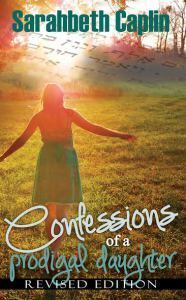 In my case, I wrote Confessions because I had only read one other life story that resembled my own. I wrote the book I wished I could have read eight years ago. Readers have asked me since if I have considered another one, and my answer is yes…but if I do write one, it likely won’t see the light of day for another ten to fifteen years. This is because my life right now has more questions than solid answers, and I know this would not make for good reading (at least not a book I would want to read). This is reflective on my age somewhat, but I could just as easily experience life-altering questions of faith at 36 as I do at 26. My hope in waiting is that, by age 36, or 42, or 50, I’ll hopefully have more solid conclusions than I do now, thus making a better, well-rounded book.
In my case, I wrote Confessions because I had only read one other life story that resembled my own. I wrote the book I wished I could have read eight years ago. Readers have asked me since if I have considered another one, and my answer is yes…but if I do write one, it likely won’t see the light of day for another ten to fifteen years. This is because my life right now has more questions than solid answers, and I know this would not make for good reading (at least not a book I would want to read). This is reflective on my age somewhat, but I could just as easily experience life-altering questions of faith at 36 as I do at 26. My hope in waiting is that, by age 36, or 42, or 50, I’ll hopefully have more solid conclusions than I do now, thus making a better, well-rounded book.
And what’s more, sometimes it’s fascinating to read two memoirs by the same author that are completely different in belief and conviction. That’s more representative of real life than anything else.
Do you think memoirs are self-indulgent, and how much life should you have lived before writing one?
Filed under: Writing & Publishing Tagged: Author Sarahbeth Caplin, Confessions of a Prodigal Daughter, Controversy, self-publishing, Writing

February 8, 2015
Dear Pops, here’s what you missed
Dear Dad,
I feel slightly silly typing this, because I know you can’t read it – though some part of me hopes that, in a way, you can. Many things have changed recently, starting with the fact that I’m not legally a Caplin anymore (though I’m still putting that name on my book covers, don’t worry). I know you knew that was going to happen, and your blessing meant so much. Josh is amazing, Pop. You know how sometimes, kids are told to marry people who share the traits of their opposite-gendered parent? In some cases, that’s very bad advice, but in my life, it was the best advice I’ve ever taken. I see a lot of similar traits you had in Joshua: he’s perpetually optimistic, at times annoyingly so. He chooses to see the good in people. He even sleeps with one arm above his head, like you used to.
I wish you could have been there at the wedding, but we made sure you were, in your own way.
And while my first dance was incredible (you know we danced to Tale as Old as Time from Beauty and the Beast?) I couldn’t help thinking of that time we danced to Pachabel Canon in the dressing room suite at Catan’s Bridal, and how we made all the employees cry. I look at that picture quite a bit, but I still can’t watch that video. I hope you understand.
You would also be so proud to know that I got a book deal, for the first time ever. My next novel will be published with Booktrope, and as soon as I got my acceptance email I thought of you saying I told you so and cried. Seriously, Popsicle, I wrote you off (see what I did there?!) when you told me it would happen some day: Big deal, all parents have to say that stuff about their kids, they’re such precious, talented snowflakes, yada yada yada. Mom posted this picture on Facebook, and I don’t remember what we were talking about, but seeing as I’m wearing my Panera uniform and judging by that…I don’t even know what you call it expression on my face, I’m guessing we were talking about the future, and my fear that I’d never be able to support myself doing what I love most.
We had that conversation many times, and I remember how you’d tilt your head and sing to me, Slow down you crazy child/You’re so ambitious for a juvenile. There was a period where I had to avoid all Billy Joel songs, for obvious reasons. Now it’s almost all I can listen to. I remember you standing in your custom-made kitchen singing I love you just the way you aaaaaaaaare! using a ladle for a microphone, and how you’d crack up when I rolled my eyes at you.
You never apologized for who you were, Dad. Ever. People like to tell me I’m a lot like you, which is a ridiculously awesome compliment, but I don’t think it’s completely true. You had every reason to despise life and curse it all away, but you didn’t. Maybe you felt that way at times, but you always told me I had a choice to accept the hard shit and turn it into fertilizer, or hide away and wallow. Unfortunately, wallowing is so much easier. I imagine what you would say to me if you knew some of the coping mechanisms I’d chosen. You’d tell me I’m better than that, and you’d be absolutely right. Because I’m your kid, dammit. I’m always your kid (“Even when I’m 93?!” “Yes Whipper Snipper, even when you’re 93”).
I try to be more creative with the ways I honor you and your memory. I wrote a letter to your surgeon thanking him for all he did to keep you with us for the last 13 years. I’m giving you the dedication page of my next novel – the one you told me was possible – all to yourself. I listen to the songs you loved and smile remembering what a goofball you were. I don’t know yet if parenthood is for me, but Josh said he’d be okay naming our son David. He’s not 100% on board with Davita if we have a girl, but I (hopefully) have another 5 years or so to get him to change his mind. I asked you once if you recommended this whole parenting thing, and you grinned in that impish way of yours and said “Sweetie, it’s the best.” You always did know best, so I’ll take your word for it (PS. I’m really pissed off I cannot discuss the finale of Parenthood with you. Like really really).
You should have been 59 today, Poppy. You should have had another 34 years with Mom. There are so many “Should haves” but I meant what I said in your office that one time: I’d rather have you as my Dad for 25 years than anyone else’s for a lifetime.
Missing you today and every day.
-Sassy
And just in case your feels haven’t been wrecked enough, see also: Lessons My Father Taught Me
Filed under: Other stuff Tagged: Author Sarahbeth Caplin, cancer, grief, Writing

February 6, 2015
“And what do YOU do?” In defense of writing in my pajamas
That dreaded “What do you do?” question. We’ve all experienced it. Some of us have no problem with it, if our jobs are in well-respected fields that make decent money, therefore allowing no one the opportunity to judge or condemn them. Others of us don’t loathe this question, exactly, but just brace ourselves for a buttload of questions that stem from ignorance or misunderstanding.
My job thrives on this question because despite all the technological advances, word of mouth is still the best form of advertising books. I’ve given away several business cards by answering the “What do you do?” question honestly. But there are generally two types of reactions, I’ve noticed, when I mention I’m a published author…
Reaction #1: “You’re published?? THAT’S SO FREAKING COOL. I can’t believe I’m standing in the presence of someone who is a real author!!!” (These people are nice because they can’t tell you the difference between indie or traditional, and don’t really care either way)
Reaction #2: (After blinking a few times) “Oh…how nice. What else do you do?”
Luckily I don’t get that response too often. Sometimes my insecurities cause me to wonder if people are secretly thinking it, especially when I’m asked this question by my husband’s colleagues in the medical field. But a self-made writing career can’t logically be compared to corporate jobs; it’s apples to kangaroos. I don’t do what I do to make money. I know I’m not always taken seriously when I talk about reading young adult books as “research” and using social media for marketing. But that is what I do; I accept it and own it.
I prefer the first kind of response because it allows me the luxury of pretending to be a bigger deal than I actually am. But both reactions can be irritating in their own way. Response #1 requires a full-fledged explanation of how the publishing industry works – that really, anyone with a computer can be an author these days, but not every author can sell books. Response #2, should you take the bait, requires an explanation of how YOUR choice of publishing works.
I don’t know how other authors do it, but over time I cultivated a routine that works for me. I wake up between 7 and 9, usually. Feed the kittens. Make coffee and read for about half an hour. Make breakfast, catch up reading blogs. Shift to working on novel (when there is a novel to work on, that is; I’m now in that “What do I do now?!” phase since Shades of Doubt has been sent to the publisher).
 At work in the office with my two best co-workers
At work in the office with my two best co-workers
In between chapters I take breaks for that boring household stuff: putting up laundry, scooping the litter boxes, emptying the dishwasher, vacuuming, folding the laundry, cleaning one of the bathrooms. After lunch is my “marketing hour” where I go to various social media outlets (for me, it’s Facebook, Twitter, Google Plus, and Linked In) and share blog links, engage with readers/followers, share other people’s links. I also have a stack of books about marketing and will read those for an hour with a cup of coffee, which counts as “homework.” Then back to writing. My next project, until another book idea comes along, is submitting essays to magazines that pay for accepted submissions.
All of this encompasses a typical 8-hour workday. Netflix does NOT get turned on until after dinner: my personal rule. It’s taken several months, but even if I don’t sell a book every day, rarely a day goes by that I don’t earn new followers, shared content, or tidbits from other writers. Sure, I could use another part-time job to supplement income, but the only person running this business is me: if I don’t devote 110% of my time to it, it will never grow into something that supports more than just my Starbucks addiction.
So to everyone who assumes that writers write for fame and money (lolz, WHAT fame? WHAT money??), please get your facts straight: I’m a writer so I can work at my own pace, making my own career decisions, in my pajamas.
Filed under: Writing & Publishing Tagged: Author Sarahbeth Caplin, cats, Indie Author Life, self-publishing, Writing

February 3, 2015
‘Fifty Shades’ and pornified rape victims
In a typical college romance novel, he’d be a gorgeous but troubled sex god who’d cure all my deep-seated psych issues with a good, hard fuck. I’d smell his misogyny and abusive tendencies from miles off but my brain would turn to hormone soup, because abs. That’s the formula. Broken girl + bad boy = sexual healing.
I wish I could say I wrote the above quote, but alas I did not. It comes from author Leah Raeder, and in just a few sentences she sums up everything that is wrong with New Adult fiction today – and why I was hesitant to label my new novel as such. With certain genres come certain expectations, and today’s expectations for young adult romance are undeniably influenced by Fifty Shades of Grey.
The question is why.
I have no personal vendetta against E.L. James. Really, all I think she set out to do was capitalize on a taboo – BDSM – that even the most sexually positive people are reluctant to talk about in public. It’s a money-maker, plain and simple. As a woman with a family herself, I’m sure the last thing she intended to do was cause further stress to abused women struggling to have their stories taken seriously.
But that’s pretty much what’s happening. And it kills me a little inside to read the excited Facebook posts of friends who went to high school with my rapist, who probably still keep in touch with him, who are dying to see this movie. It kills me for a number of reasons:
Christian uses alcohol to numb Ana’s senses enough so she is easily manipulated into rough sex. By law, this is rape.
While I’m not interested in BDSM myself, my research and discussions with a few friends willing to share their experiences explained that there is heavy emphasis on “safe words.” If the experience gets too intense, you say whatever word you and your partner choose, and the activity stops.
Ana uses the safe word; Christian ignores it. This is rape.
Ana hides from Christian and occasionally fears him. This is a classic hallmark of abuse.
This is so eerily similar to what my ex-boyfriend did to me from age seventeen to twenty-two. I assure you, there is nothing sexy about it.
I have to believe that the reason for this story’s popularity is not so much because people find this sexy – although plenty of people might – but because it’s different. It’s not the ‘normal’ love story, where the male protagonist says all the right swoony things to invoke the usual unrealistic expectations of romance in real life. Authors have been there, done that. What’s happening here is a desire to break out of the mold that people expect by capitalizing on a darker side of relationships that is often overlooked.
But abuse is overlooked for a reason: abuse is, by definition, uncomfortable. Talking about it means acknowledging it, and acknowledging it means having to deal with it. The first hurdle for domestic violence victims is finding the courage to share their experiences with the right people. Now, it’s having to explain why the things that happen to a pretty girl onscreen are downright dangerous when the man doing them isn’t as rich, sexy, and mysterious as Christian Grey. Fans of this book attempt to redeem the story by explaining “it’s all okay” because he changes in the end.
Right. Tell that to the 4,000 women who are murdered by their partners every year. Their partners didn’t “change” despite every effort to make that happen, I’m sure. “I can change him” is the biggest lie ever told in the history of human relationships, and statistics continue to prove this with body counts. “I can change him” is one of the biggest reasons (not THE biggest, but one of them) that women stay.
Which brings me to my own 55-thousand-word response to Fifty Shades of Grey, its fans, and its producers: Shades of Doubt’s title refers to the varying degrees of disbelief that rape victims face when they share a story that defies the atypical media portrayal of a one-dimensional rapist hiding in the bushes, waiting for the chance to grab a Spandex-clad jogger. Shades of Doubt exposes the degrees of damage that “nice guys” like Christian Grey (though not nearly as rich and not always as good-looking) can inflict on their partners when consent is ignored. When the “nice guys” refuse to consider that there is anything wrong with their behavior.
How would readers feel about Fifty Shades if Christian didn’t “change” at the end? If the broken girl stayed broken?
Tell me when two enthusiastic, consenting adults engaging in sex started to lose its appeal.
See also: This is not a ‘love’ scene
Add Shades of Doubt on Goodreads.
Filed under: Rape Culture, Writing & Publishing Tagged: Author Sarahbeth Caplin, Controversy, Facebook, Fifty Shades of Grey, rape culture, Writing

Shades of Doubt excerpt: “The average woman wouldn’t make this up” Part II
Enjoy another excerpt from Shades of Doubt, COMING SOON FROM BOOKTROPE!
Adelaide Scott is a 25-year-old magazine columnist for a a Cosmopolitan-style women’s magazine. Her new boyfriend, Jordan, is a photographer for Sports Unlimited, and is quite well-known and respected in his field. Until one of his ex girlfriends publicly accuses him of rape. Jordan swears he’s innocent, and Addie wants to believe him. So Jordan gives her a list of all his recent exes for Addie to ‘interview’ to prove he’s telling the truth. Addie will find out the truth…but it’s nothing like she expects.
Check out other excerpts here and here. And if you’re curious why another novel concerning rape and consent is warranted, click here and here.
***
“So I met with another one of Jordan’s exes today.”
“Oh, that’s right. So is JJ still not a rapist?”
Talk about a loaded question. Holding my wine glass by the stem, I spin it on my knee, contemplating how to answer. “Long story short, he tried some kinky things she didn’t like, so she asked him to stop, and he likened it to a second-grader pulling a girl’s hair to tell her he likes her.”
Kiersten’s eyes bulged as she held her glass close to her lips, as if anticipating shocking news that would require an emergency pump of alcohol to face. “That’s it?”
“Uh, yup. That’s what she said.”
That’s what she said. Ha, ha.
“Wow.” Kiersten sets the glass roughly on the table, causing the Merlot inside to vehemently swish. “Jordan’s dated some pretty weird women, if that’s their definition of assault.”
“Well remember, they weren’t the ones who accused him. Only Samantha did.”
“Right. Why don’t you just forget the whole ‘interview’ thing and get the information you want straight from the horse’s mouth? Quit wasting your time with his exes and just talk to Samantha already.”
I had considered doing that. Funny how Jordan didn’t recommend I do that in the first place. Unless she’s just too volatile, too fragile to confront. Not to mention, I could never use a fake identity with her. She’d know exactly who I am and what I’d want from her.
“Maybe I will later,” I say. “This is still worthwhile, though. I’m too intrigued to give up now, especially when there are still two more names left. I’m halfway done already.”
Kier shakes her head. “Allow me to give you my unsolicited opinion, since I’m your best friend. You aren’t getting anything useful from them. At all. They sound like lonely, jilted women who saw an opportunity to dress up the story of their failed relationships to get sympathy, and you know what? It’s working. Don’t you see? Maybe they’ve seen through your little charade and are just playing you.”
“I don’t think that’s what–”
“They’re cobbling together stories to put doubts in your head so you’ll dump Jordan! That’s what they want! They hate him for not wanting to get serious, so this is their payback. Not the best kind that I’ve seen, but still ruthless in its own way.”
“And what could they possibly have to gain from this? Wouldn’t falsely accusing someone only come back to bite them in the ass?”
Kiersten seems to consider this. “You would think. But who says Jordan dates smart women?”
It only took a few seconds to realize her mistake. “Oh, shit, Addie, I didn’t mean…”
“You meant to say that Jordan only dated bimbos before he met me,” I clarify for her. “Thanks to me he’s raising his standards.”
“Exactly what I meant. Cheers?”
We clink our glasses.
Filed under: Rape Culture, Writing & Publishing Tagged: Author Sarahbeth Caplin, Controversy, rape culture, Writing

February 2, 2015
On writing with cats
Working from home with small animals is a lot like having toddlers: they always want something. They don’t know how to leave you alone (not that they’re supposed to). True, you could go to another room and lock them out, only to feel like a horrible person as you listen to cries that sound like, “Mommy, why do you hate me?”
But I wouldn’t have it any other way. Meet the two cutest distractions in the entire world, Catniss Everclean…
And Zoey
I remember the first time I saw the apartment I now call home. I was in Ohio for several months taking care of my Dad, and left full trust with Josh to pick the right place and move in. When I finally saw it in person, I thought, This is great, but it’s missing two things to make it perfect: bookshelves and kittens.
Josh was “meh” about the bookshelves, but totally on board with the kittens. We adopted them from a local shelter a few days before Christmas, then only 8 weeks and 12 weeks old. They have been nothing but adorable trouble ever since: getting into things (even after kitten-proofing the apartment), jumping onto forbidden surfaces like tables (well, one of them could jump, the other would try and hilariously fail), not understanding the concept of a litterbox (that, thankfully, has been solved).
But they are more than just fuzzy fixtures in our home. As my anxiety comes and goes and depression waxes and wanes, these critters have been the best and most effective form of therapy. They give me more of a reason to get up in the morning, and not just because they’re hungry: they figured out how to open the bedroom door and will gently chew my ears to wake me up. We snuggle for a few minutes before breakfast and morning coffee and more cuddles.
Then, it’s writing time. Most of the afternoon, really, is writing time, often with one of these furballs in my lap:
Sometimes they make typing difficult:
And the breaks in which I attempt household chores next to impossible:
But sometimes they understand that Mommy has things to do, and reluctantly accept it by napping on the floor next to my writing chair.
Never before have I had stronger justification for taking my work to Starbucks for distraction-free writing.
Or not…
“Zoey, I need that laptop case…”
“Nope, I has claimed it.”
Except I don’t think I’ll use that excuse often, because these girls will only be kittens once, and have already doubled in weight during the last month (Catniss is now THREE pounds, and Zoey FOUR pounds, those little chunkers).
It might take me twice as long to finish my next novel with these lovable distractions, but these girls (collectively called The Kitten Littles) are the closest I expect to get to motherhood, and I’m enjoying every moment.
Filed under: Other stuff, Writing & Publishing Tagged: Author Sarahbeth Caplin, cats, depression, self-publishing, Writing


